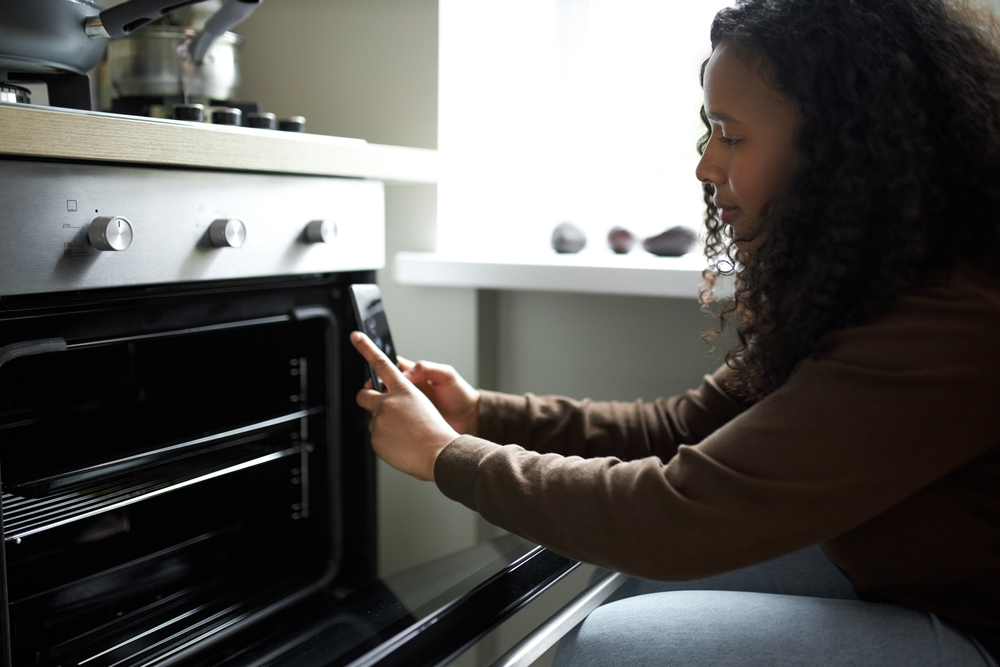Everything You Need to Know About Moving During COVID-19

Moving soon? Get organized with our free moving checklist.
As the number of coronavirus cases continues to grow, we’re watching our friends and neighbors around the world practice social distancing, self-monitoring, and quarantining themselves, in an effort to contain the virus. Here is what you need to know about moving during COVID-19.
In various countries and cities, residents are sheltering in place and under mandatory lockdown. With the closure of many non-essential public places and businesses and shutdowns across many industries, we’re receiving lots of questions about moving — is it essential or not? Should I still move?
This practical guide is designed to help you ask the right questions about your moving during the COVID-19 pandemic and will be updated regularly with new information.
It’s important to recognize that Updater is not a health care company and we’re not health care professionals. While we’re moving experts, the CDC and other qualified health officials should be your primary source of current information and guidance.
Here are a few things to consider as you plan to move during an emergency situation:
Is moving considered “essential”?
Essential reasons to leave your home during a lockdown, as defined by many local and state officials, include: getting health care, shopping for groceries or supplies, caring for family members, and exercising outside.
Since moving inevitably cuts against social distancing best practices, we encourage you not to move at this time unless local officials deem your specific move as essential, or your business is deemed essential and you must move for work. Stay where you are, if you can.
If you haven’t signed the home contract yet, but plan to, request an addendum for additional flexibility should the parties be quarantined or unable to complete the transaction (here’s an example from the Texas Association of REALTORS).
If you aren’t required to leave your current home, you should stay right where you are. Staying home can help prevent the spread of COVID-19, sick or not.
If possible, try to reschedule your move for a later time when we have more information on the spread of the virus and all parties involved in the move (you, the new homeowner or management company, the moving company, etc.) can implement best practices and comply with the instructions of local authorities.
Due to the need to safely “shelter in place” in compliance with the current COVID-19 directives, moving is considered essential in many cities. However, we still recommend checking with your local authorities beforehand, as local law enforcement is the determining voice in this discussion. Be sure to comply with the direct orders of your local officials and continue to monitor their communications. Feel free to call your officials to ask if no guidance has been provided.
If you do have to move, your moving company should put health and safety first
Your health and safety and the moving company’s employees’ health and safety will be the moving company’s highest priority when moving during the COVID pandemic.
We suggest you call your moving company to discuss your options.
If your move is necessary, and your moving company plans to move you, they should help you plan as safe (and seamless) a move as possible. This may include:
- A virtual survey instead of an in-home survey to provide a price estimate
- Screening their crew for symptoms to ensure health and safety
- Adding hand sanitizer to all trucks
- Movers wearing gloves and masks
- Heightened daily cleaning procedures for shared, high-touch surfaces in your homes, on the trucks, on the equipment, and their dispatch/office areas
- Free storage from your moving company. Some companies will offer to hold your belongings for free if you need to leave your old home, but your new home isn’t ready yet (thanks Shur-Way Moving in Libertyville, IL).
Bonus tip: Don’t pack the soap! Give your moving crew access to wash their hands with hot water frequently.

If you choose to postpone your move with a professional moving company
If you’ve made the decision to postpone your move and need to cancel your moving company — don’t fret. In most cases, booking a moving company is non-binding, allowing you the freedom to cancel at any point prior to your move, without penalty.
However, if your moving company collected a deposit prior to your move, it may be non-refundable. Contact your moving company about your deposit, as many reputable moving companies will make an exception considering the pandemic and either refund the deposit or provide credit for a future move.
If your professional moving company cancels on you
Don’t worry — you have options.
- You can move yourself, in your own vehicle. This is the safest option for moving during COVID.
- You can rent a truck.
- You can move in with friends or family members and put your belongings in temporary storage — you can compare and price out storage units nationwide on Sparefoot.
- You can move into temporary, furnished housing and put your belongings in storage — Extended Stay America has relaxed their cancellation policies or check availability with SuiteAmerica.
If you’re a military member scheduled to move
On March 25, 2020, US Defense Secretary Mark Esper signed an order freezing the movements of all US troops overseas for 60 days – all service members overseas or scheduled to move from the US (approximately 90,000 expected deployments) will remain in their current locations for the next 60 days.
The Department of Defense (DoD) announced on March 13, 2020 that all military personnel will stop movement until May 11, 2020. This policy applies to Permanent Change of Station (PCS) and Temporary Duty. There are exceptions, but those must be approved. The restriction on military moves is “necessary to preserve force readiness, limit the continuing spread of the virus, and preserve the health and welfare of Service members, DoD civilian employees, and their families, and the local communities in which we live.” You can read the full memorandum here.
If you’re concerned about paying rent or being evicted
Also, if you’re a renter, be sure to check with your property management company and local officials on rent payment flexibility, eviction proceedings and eviction orders. As of March 25, 2020, multiple cities and tenant rights groups are exploring the possibility of a rent freeze.
Additionally, on March 13, 2020, San Francisco suspended evictions of residents who can’t pay rent due to impact from the pandemic, and New York City followed suit on March 16, 2020. On March 18, 2020, the White House directed the US Department of Housing and Urban Development to suspend all evictions and foreclosures through the end of April 2020. The FHFA also announced it has directed Fannie Mae and Freddie Mac to suspend foreclosures and evictions for at least 60 days.
If your state has issued a “shelter in place” order and you’re worried about the day-to-day interactions at your apartment community — apartment associations nationwide are taking steps to address these concerns. The National Apartment Association has recommended apartment communities take necessary precautions that allow staff to maintain a quality living standard for residents, while also protecting your health and safety. This includes:
- Limiting onsite employees and interaction between staff and residents where possible.
- Suspending non-essential maintenance and repairs such as upgrades or cosmetic renovations.
- Continuing move-out walk-through inspections when requested by residents (while following social distancing protocols).
- Providing virtual and low-contact showings to prospective residents.
If you move into a new home, deep clean it
If you are proceeding with your plans for moving during COVID-19, be sure to deep clean and sanitize your new home before you move into it. Here are a few resources and tips to help:
- CDC’s recommendations on how to clean and sanitize your home
- EPA’s list of disinfectants that meet the criteria to fight COVID-19. When purchasing any product, check if its EPA registration number (located on the product label) is included in this list. The products on this list may be marketed and sold under different brand names, but if they have the same EPA registration number, they are the same product.
- Use disinfectant wipes for quick cleanings over the most high-touch areas — doorknobs, sinks, cabinet pulls, refrigerators, etc.
- Use disinfectant sprays for areas that can’t be wiped clean. You can use Lysol, for example, on your couches and mattresses which will touch many surfaces during a move (the ground, the inside of a truck, etc.).
- Use this CDC bleach mixture recommendation on your new tile floors. Use a disinfecting wet mop cloth on your hardwood floors (here’s one from Clorox on Amazon).
- In addition to cleaning as you pack, and while you are moving during COVID-19 — as you unpack, be sure to also disinfect your computer and accessories (keyboards can get pretty gross — here’s how to clean them), your television remote controls, credit cards, wallet, and more.
If you have an extra minute, here are some additional things to consider if you are moving during COVID-19
- Prioritize your internet setup. Scheduling an internet installation date at your new home is critical for staying connected to friends and family. There can be longer call wait times at cable and internet providers right now, as more and more people call to increase speeds and bandwidth. You can’t bank on getting an appointment as easily as you have in the past. Additionally, consider a high-bandwidth plan to account for changes in working from home, video calls, multi-device streaming, etc.
- Stocking your kitchen full of groceries will feel a bit different this time around. Try Shipt (here’s a $25 credit and a free month of delivery — score!), or Instacart (here’s a free 14-day trial), or delivery options from your local grocery store.
- Don’t hoard, but do stock up. Target and Sam’s Club both deliver and have the essentials you need.
- If you’re planning to move because you wanted to access the equity in your home, there’s a company called EasyKnock that will buy your home and rent it back to you. Their sale-leaseback program will help you unlock the value without having to move right now. However, it’s not available in every city just yet.
We understand your concerns – this is a scary time and moving during the COVID-19 pandemic certainly takes moving stress to the next level. We encourage you to visit the CDC website and your local authority’s website for updated information and safety precaution tips.
Remember — this is a rare time where your actions are about something bigger than you. Your actions protect people you may never meet. We are all part of a much larger community and together we can make a huge impact on the lives of others.













